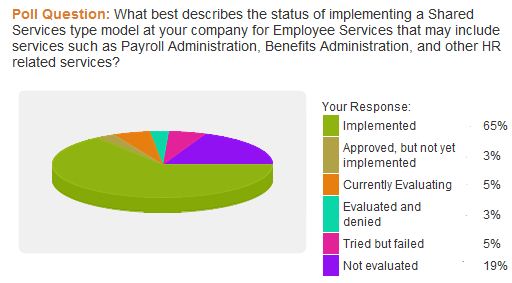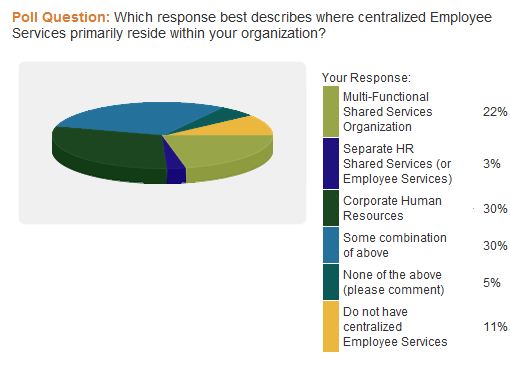Shared Services – Beyond Finance and into Human Resources
Most Shared Services, and broader transformation efforts, are usually initiated and have as their main scope, Finance related functions. This is not that surprising as many of these activities are high volume, repetitive in nature, and easily quantified in terms of costs and potential synergies.
As these transactional Finance activities deliver on the promised savings, more mature organizations use their Shared Services model as a foundation for broader transformation throughout the Finance function. In many cases, this means further transformation through transitioning expert-type services to Shared Services such as Treasury, Tax, Month-End Closing, and Financial Reporting and, in some instances, Decision Support Analysis. This leaves the enterprise with a business model in which decision rights and roles are clearly defined; Operations focus on the external customer, Corporate on strategic direction and shareholder relations, and Shared Services on delivery of internal support services (e.g. transactional, expert, data analytics, etc.) to their customers (Operations and Corporate).
Given the success and maturity of the Finance related Shared Services model, leading companies have moved additional functional area activities into Shared Services. In the past few years, many organizations are transforming their Human Resources functions and looking at the model they used for Finance as a roadmap to accomplish their objectives.
A recent Peeriosity member company-initiated poll highlights that Human Resources transformation efforts are well under-way and in some cases very mature at some of the world’s leading organizations. The common theme we are seeing; they are leveraging mature Finance shared service models already in place and replicating the broader enterprise-wide efforts. That is, Human Resources Shared Services is providing all HR support-related services, while Operations focuses on the “human” side of Human Resources and Corporate on broader strategic issues and overall guidelines, such as compensation and benefit design.
Their first question asked what the status of having a separate HR Service Center was within your organization. As you can see from the response below, the vast majority have implemented. In almost every case, the road is similar to Finance; it starts with transactions (e.g. Payroll) and Master Data (in this case employee), and from there grows to benefits and other transactional and expert services. In a few cases, we have seen Staffing, Employee Relations, Training and Knowledge Management, and even Compensation Design as part of the HR Service Center scope.
While the first question clearly concluded that moving to HR Shared Services is a best practice model, the second question where it resides was not as conclusive. The most prevalent models include; part of a multi-functional Shared Services organization, a component of Corporate HR, or some combination of the two.
One thing is certain, Human Resources is going through major transformation efforts in many organizations and Shared Services will be part of that equation. In response to our members, Peeriosity has recently launched a new Human Resources research area where leaders will get the opportunity to learn from each other’s actual experiences.




